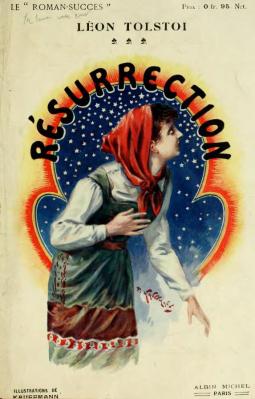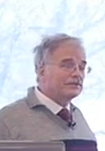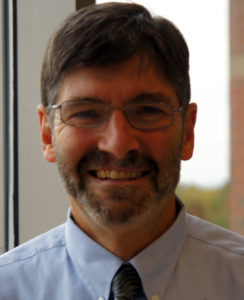 Resurrection (1899)
Resurrection (1899)
By Leo Tolstoy
This late 19th-century novel about nobleman Dmitri Ivanovich Nekhlyudov’s efforts at redemption after a life of sin is Tolstoy’s last major novel before his death in 1910. The readers will have a complex relationship with the tormented protagonist and his desperate attempts at redemption and forgiveness, since Nekhlyudov’s misguided decisions and youthful errors are often not so dissimilar from our own. Resurrection is a scathing exposition of the myriad prejudices of the man-made justice system and the hypocrisy of the establishment, while it also explores the economic philosophy of Georgism – of which Tolstoy had become a strong advocate toward the end of his life. [from the Culture Trip]
Political Economy Book Club discussions are open to everyone interested, without charge, and the text (in English translation) is available free from various sources including archive.org, who also offer a free audiobook. There is also a more recent translation by Anthony Briggs, which can be purchased or licensed in various formats and is available in some public libraries. Any questions about the PEBC may be directed to Convenor Bob Matter,
“The purpose of Newspeak was not only to provide a medium of expression for the world-view and mental habits proper to the devotees of IngSoc, but to make all other modes of thought impossible. It was intended that when Newspeak had been adopted once and for all and Oldspeak forgotten, a heretical thought – that is, a thought diverging from the principles of IngSoc – should be literally unthinkable, at least so far as thought is dependent on words.“
— George Orwell

Something like this has happened to the field of economics, says Dan Sullivan. Terms which had clear meanings to Adam Smith, J S Mill, and other classical economists have got distorted and redefined– or obliterated– to prevent serious discussion of economic issues. Going back to the roots of political economy, Dan suggests the real point of a proper science of economics would be to efficiently satisfy the desires of the people, both individually and collectively.
Dan will help us distinguish between “rights” and “privileges,” “investments” and “acquisitions”, and several distinct concepts that all get called “wealth.” He’ll address the difference between “means of production” and “capital,” and differentiate “human capital” from modern slavery.
You can understand today’s economic issues such as minimum wages, tax policy, international trade, housing costs, and unemployment, but only if you have a clear idea of the fundamental terms. These terms can be readily comprehended by ordinary people and do not lead to any particular “left” or “right” public policy, but they facilitate informed communication.
There will of course be time for questions and discussion.
Based in Pittsburgh, Dan Sullivan is a popular speaker on economic issues, and Director of Saving Communities

Cook County isn’t broke either. Neither is Chicago.
In this session you will learn about the legitimate earnings that our communities generate every day, and how collecting these earnings would allow removal of barriers to productive work which make it unnecessarily difficult for working people to earn a living.
There’s plenty of waste and fraud throughout government, but that’s not the focus here. Even an honest and efficient government requires revenue, and the source of that revenue determines whether we can have prosperity and freedom, or — something else.
PREREGISTRATION MANDATORY. This program is free, but due to building policies you must pre-register by email or by phoning us at 312 450-2906.

Cook County isn’t broke either. Neither is Chicago.
In this session you will learn about the legitimate earnings that our communities generate every day, and how collecting these earnings would allow removal of barriers to productive work which make it unnecessarily difficult for working people to earn a living.
There’s plenty of waste and fraud throughout government, but that’s not the focus here. Even an honest and efficient government requires revenue, and the source of that revenue determines whether we can have prosperity and freedom, or — something else.
PREREGISTRATION MANDATORY. This program is free, but due to building policies you must pre-register by email or by phoning us at 312 450-2906.

Ron Baiman will speak on taxing the rentier sectors to achieve the necessary reallocation of economic resources and investment. Mr. Baiman is an economics professor at Benedictine University,
Registration is required for this free event.

Decades before Wealth of Nations, Adam Smith wrote what he seems to have considered a superior work, Theory of Moral Sentiments. He wrote:
How selfish soever man may be supposed, there are evidently some principles in his nature, which interest him in the fortune of others, and render their happiness necessary to him, though he derives nothing from it except the pleasure of seeing it.
Wikipedia asserts:
Smith critically examines the moral thinking of his time, and suggests that conscience arises from dynamic and interactive social relationships through which people seek “mutual sympathy of sentiments.”[74] His goal in writing the work was to explain the source of mankind’s ability to form moral judgement, given that people begin life with no moral sentiments at all. Smith proposes a theory of sympathy, in which the act of observing others and seeing the judgements they form of both others and oneself makes people aware of themselves and how others perceive their behaviour.
The Theory of Moral Sentiments has been printed in numerous editions, and is also available free on line. Smith revised the book throughout his lifetime; it’s best to avoid the first edition, and choose one published after his death in 1790.
In this session we’ll discuss parts 1-3 of the book, taking up parts 4-7 on November 20,

